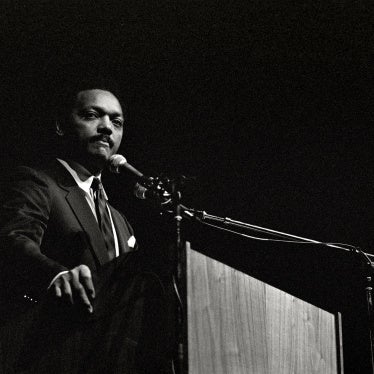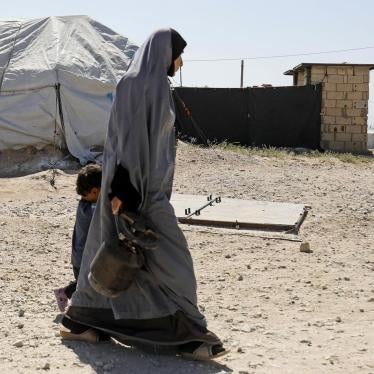The Honorable Joseph R. Biden
President of the United States
The White House
1600 Pennsylvania Ave. NW
Washington, DC 20500
Cc: Alejandro N. Mayorkas, Secretary, United States Department of Homeland Security; Neera Tanden, Domestic Policy Advisor to the President; Jeffrey Zients, White House Chief of Staff
RE: DHS must collect Race and Ethnicity data
Dear President Biden,
On behalf of the Black Alliance for Just Immigration and the undersigned local, state, and national organizations, we urge you to immediately and publicly commit to mandating that the Department of Homeland Security (DHS), systematically collect race and ethnicity data.
The Biden Administration had promised a commitment to racial equity and specifically identified the collection of race and ethnicity data as a fundamental “first step to promoting [such] equity in Government action.” [1] Department of Homeland Security (“DHS”) Secretary Alejandro Mayorkas echoed that commitment in a memorandum, in which he emphasized the need “to collect detailed, precise, and comprehensive data as to every aspect of the enforcement actions” to “ensure that enforcement actions are not discriminatory and do not lead to inequitable outcomes.”[2] DHS’s recognition of the need for race data collection is an important first step to implementing the Biden administration’s commitments to race equity. A robust data collection regime is critical to identifying racial bias. Drawing on successful examples of race data collection in other law enforcement and federal agencies, DHS should follow this practice and mandate the comprehensive and accurate collection of race data.
Over the past two decades, states and local law enforcement agencies—which are responsible for the vast majority of policing and detention in the United States—have adopted processes of race and ethnicity data collection that are used to identify racially discriminatory practices and policies in law enforcement.[3] Indeed, at present, a majority of states have policies—many pursuant to state law—requiring the collection of racial data in law enforcement.[4] In some cases, court settlements mandated such requirements following litigation challenging racially discriminatory practices.[5] In others, state or local agencies voluntarily collected this data.[6] These states' policies are strong models for DHS to create its own race and ethnicity data collection system.
Many of these policies were adopted at the turn of the twenty-first century and in response to heightened tensions between communities of color and police.[7] For example, “[d]uring the time when attention to the concept of ‘driving while black’ or ‘driving while brown’ surged, a number of states passed laws for the first time mandating the collection of data on routine traffic stops.”[8] Another wave of states adopted similar laws following a spate of high-profile officer-involved killings of people of color from 2014 through 2017, which included the murders of Michael Brown, Freddie Gray, and Eric Garner.[9] Specifically, at least eleven states “enacted new laws that require police departments to collect and report information related to officer-involved shootings, deaths, or other incidents of force.”[10] More importantly, “some of these laws also require departments to track information on all civilian or traffic stops, and the number of civilian complaints, including any outcomes of investigations.”[11]
DHS and ICE should align with and implement anti-discrimination-related best practices for collecting race data adopted by various government and law enforcement agencies. This data collection and its publication would result in a host of benefits for the public, specifically, increased transparency and allow for the identification of racial profiling and biased decision-making.[12]
DHS should implement its own race and ethnicity data collection scheme as follows:
(1) Mandate the collection of race and ethnicity data, a practice consistent with the vast majority of law enforcement agencies across the country; and
(2) Make the collected data publicly available to ensure transparency and to help community-based organizations and researchers better understand its law enforcement practices.
Sincerely,
Black Alliance for Just Immigration
Joined by:
AAPI Equity Alliance
Acacia Center for Justice
Advancement Project
ABISA African Bureau for Immigration and Social Affairs (ABISA)
African Commission on Human and Immigrant Rights
African Communities Public Health Coalition
African Communities Together
Al Otro Lado
Alabama Coalition for Immigrant Justice
Alianza Americas
Alliance San Diego
American Humanist Association
American Immigration Lawyers Association New York Chapter
Americans for Immigrant Justice
Arkansas United
Asian American Legal Defense and Education Fund (AALDEF)
Asian Americans Advancing Justice-AAJC
Asian Pacific American Labor Alliance - San Diego Chapter
Asylum Program of Arizona
Asylum Seeker Advocacy Project (ASAP)
Austin Region Justice for Our Neighbors
Black Immigrant Collective
Black LGBTQIA+ Migrant Project
Black Voters Matter Fund
Blasian March
Borderlands Resource Initiative
California Coalition for Women Prisoners
California Gig Workers Union
California Latinas for Reproductive Justice
Cancel the Contract
Capital Area Immigrants' Rights (CAIR) Coalition
Carolina Migrant Network
Catholic Migration Services
Center for Constitutional Rights (CCR)
Center for Gender & Refugee Studies
Center for Immigration Law and Policy; UCLA School of Law
Center for Law and Social Policy
Center for Popular Democracy
Central American Resource Center Los Angeles (CARECEN-LA)
Centro Binacional para el Desarrollo Indigena Oaxaqueño (CBDIO)
Children Now
Co-Counsel NYC
Coalición de Derechos Humanos
Coalition for Humane Immigrant Rights (CHIRLA)
Communities United for Restorative Youth Justice
Contra Costa Immigrant Rights Alliance
Cornell Asylum Appeals Clinic
Courage California
Divas Against Injustices
Drug Policy Alliance
East Bay Refugee and Immigrant Forum
Ensuring Opportunity Campaign
Envision Freedom Fund
Esperanza Community Housing
Mixteca Organization, Inc.
Faith in New Jersey
Faith in New York
Families For Freedom
Florence Immigrant & Refugee Rights Project
Freedom for Immigrants
Friends Committee on National Legislation
GA Familias Unidas
Georgia Coalition for the Peoples Agenda
Georgia Human Rights Clinic
Global Emergency Response & Assistance
Global Urban Cultural Community
Haitian Bridge Alliance
Harbor Institute for Immigrant & Economic Justice
Health Care 4 Us
Highlander Research & Education Center
Houston Immigration Legal Services Collaborative
Human Rights First
Human Rights Watch, US Program
ICE out of Tarrant
Illinois Coalition for Immigrant and Refugee Rights (ICIRR)
Immigrant Children Advocates' Relief Effort (ICARE)
Immigrant Defense Project
Immigrant Legal Advocacy Project
Immigrant Legal Resource Center
Immigration Services and Legal Advocacy (ISLA)
Indivisible CA: StateStrong
Indivisible Georgia Coalition
Indivisible Ventura
Inland Empire Immigrant Youth Collective
Institute for Justice & Democracy in Haiti
International Refugee Assistance Project (IRAP)
Just Detention International
Just Neighbors
Justice in Motion
JusticeLA
Karen Organization of San Diego
La Defensa
LACAN
Laredo for Economic Justice
Laredo Immigrant Alliance
Las Americas Immigrant Advocacy Center
Latino Community Fund Georgia
LatinoJustice PRLDEF
Lawyers' Committee for Civil Rights of the San Francisco Bay Area
Lawyers' Committee for Civil Rights Under Law
Liberia Chamber of Commerce in the Americas
Louisiana Advocates for Immigrants in Detention
Make the Road New York
Mariposa Legal
Massachusetts Immigrant & Refugee Advocacy Coalition
Mijente
Movement for Black Lives (M4BL)
Muslim Advocates
National Association for the Advancement of Colored People (NAACP)
National Coalition on Black Civic Participation
National Immigrant Justice Center
National Immigration Law Center
National Immigration Project
National Korean American Service & Education Consortium (NAKASEC)
National Network for Immigrant and Refugee Rights (NNIRR)
National Urban League
NETWORK Lobby for Catholic Social Justice
New Jersey Alliance for Immigrant Justice
New Jersey Consortium for Immigrant Children
New Jersey Institute for Social Justice
New York Immigration Coalition
New York Law School Asylum Clinic
Northwest Immigrant Rights Project
Nourish California
Oasis Legal Services
ÓRALE Organizing Rooted in Abolition Liberation and Empowerment
Orange County Rapid Response Network
Our Voice Nuestra Voz
Pennsylvania Immigrant and Citizenship Coalition
People's Action
Progressive Leadership Alliance of Nevada
Pure Justice
Racial and Ethnic Mental Health Disparities Coalition
Resilient Advocates Collective
Robert F. Kennedy Human Rights
Rocky Mountain Immigrant Advocacy Network
Safe Harbor Clinic, Brooklyn Law School
Safe Passage Project
San Diego Immigrant Rights Consortium (SDIRC)
San Francisco Public Defender's Office
Secure Justice
Senior Advocates for Justice
Social Justice Collaborative
Solidarity Analytics & Media
Solutions NOT Punishment Collaborative, Inc.
South Bay People Power
Southern Border Communities Coalition(SBCC)
SPLC Action Fund
Sur Legal Collaborative
SURJ Marin
Survivors of Torture, International
Texas Civil Rights Project
The Advocates for Human Rights
The Mami Chelo Foundation Inc
The TransLatin@ Coalition
The Zolberg Institute on Migration and Mobility
Trade Show Temps
Tulane Immigrant Rights Clinic
UCLA Labor Center
Tsuru for Solidarity
Unidos MN
Unitarian Universalist FaithAction NJ
Unitarian Universalist Refugee & Immigrant Services & Education
United African Organization
UnLocal
Vera Institute of Justice
Voces Unidas RGV
White People for Black Lives (WP4BL)
Whosoever Will Christian Church
Women's Refugee Commission
Woori Juntos
Working Families Parties
Young Center for Immigrant Children's Rights
Young Invincibles
805 Undocufund
[1] Exec. Order No. 13985, 86 Fed. Reg. 7009, 7011-12 (Jan. 20, 2021).
[2] Alejandro N. Mayorkas, Sec’y, U.S. Dep’t of Homeland Sec., to Tae D. Johnson, Acting Director, U.S. Immigr. and Customs Enf't, at 5 (Sept. 30, 2021), https://www.ice.gov/doclib/news/guidelines-civilimmigrationlaw.pdf [hereinafter Mayorkas Memorandum].
[3] See generally Deborah Ramirez, Jack Mcdevitt & Amy Farrell, U.S. Dep’t Of Just., A Resource Guide On Racial Profiling Data Collection Systems, iii (Nov. 2000).
[4] See Appendix A. Specifically, twenty-eight states have such policies; twenty-four of them pursuant to state law. At the state and local level, the most common situation in which race data is collected is in the context of traffic stops. See generally Frank Baumgartner, Leah Christiani, Derek Epp, Kevin Roach & Kelsey Shoub, Racial Disparities in Traffic Stop Outcomes, 9 DUKE F. L. & SOC. CHANGE 21, 27 (2017) (stating that “[w]e focus on perhaps the most routine, and certainly the most common, police-citizen interaction: the routine traffic stop” and that “the most common enactment of policies to study traffic stops is through legislation by the state”); see also It’s Time to Start Collecting Stop Data: A Case for Compressive Statewide Legislation, N.Y.U., POLICING PROJECT (Sept. 30, 2019), https://www.policingproject.org/news-main/2019/9/27/its-time-to-start-collecting-stop-data-a-case-for-comprehensive-statewide-legislation. (stating that the traffic stop is “a key element of modern policing and the most common interaction that members of the public have with police officers” and listing a plethora of states that, as of 2019, had begun mandating race/ethnicity data collection at traffic stops); see, e.g., Appendix A: Alaska, Indiana, Michigan, and Pennsylvania are among the states that voluntarily track race data at traffic stops. Additional information on each of these states’ policies can be provided on request.
[5] See, e.g., Agreement for the Sustainable Reform of the P.R. Police Dep’t at 28-29, U.S. v. P.R., No. 3:12-cv-2039 (D.P.R. Dec. 21, 2012), available at http://www.justice.gov/crt/about/spl/documents/prpd_agreement_12-21-12.pdf (mandating that “PRPD’s stop data collection system . . . require officers to document . . . the subject’s apparent race, color, ethnicity or national origin, gender, and age” during all investigatory stops and searches); see also Arnold v. Ariz. Dep’t Pub. Safety, No. CV–01–1463–PHX–LOA, 2006 WL 2168637, at *3, *12 (D. Ariz. Jul. 31, 2006) (ordering the settlement agreement between the A.C.L.U. and the Arizona Department of Public Safety, which contained a data collection requirement); Settlement Agreement at 11-15, Arnold v. Ariz. Dep’t Pub. Safety, No. CIV 01-01463 PCT-JAT (D. Ariz. 2006), available at https://www.aclu.org/sites/default/files/field_document/arizona%20dps%20settlement.pdf (requiring the Arizona Department of Public Safety to collect the “[r]ace/ethnicity of the person contacted” during all traffic stops).
[6] See Appendix A (listing Alaska, Alabama, Indiana, Michigan, Pennsylvania, and South Dakota as among the states that voluntarily track this data).
[7] See RAMIREZ ET AL., supra note 38, at iii.
[8] Baumgartner et al., supra note 39, at 23.
[9] See Gov. Jerry Brown Signs Anti-Racial Profiling Bill, KXTV (October 4, 2015, 11:28 AM), https://www.abc10.com/article/news/local/california/gov-jerry-brown-signs-anti-racial-profiling-bill/103-32099596 (explicitly linking California’s data collection law to the Michael Brown shooting); see also RAM SUBRAMANIAN & LEAH SKRZYPIEC, VERA INST. JUST., TO PROTECT AND SERVE: NEW TRENDS IN STATE-LEVEL POLICING REFORM, 2015-2016 at 7, 33-35, 48 n.3 (April 2017) (discussing the police killings of Michael Brown, Jeremy Mardis, Akai Gurley, Tamir Rice, Eric Garner, Freddie Gray, Walter Scott, Samuel DuBose, Jamar Clark, Alton Sterling, Philando Castile, Keith Scott, Terence Crutcher, and Deborah Danner as catalysts for new or updated state laws requiring race and ethnicity data collection in the context of traffic stops implemented from 2015-2016 in California, Colorado, Illinois, Maryland, and Rhode Island).
[10] SUBRAMANIAN ET AL., supra note 44, at 33 (emphasis added).
[11] Id.
[12] See infra Section IV.








